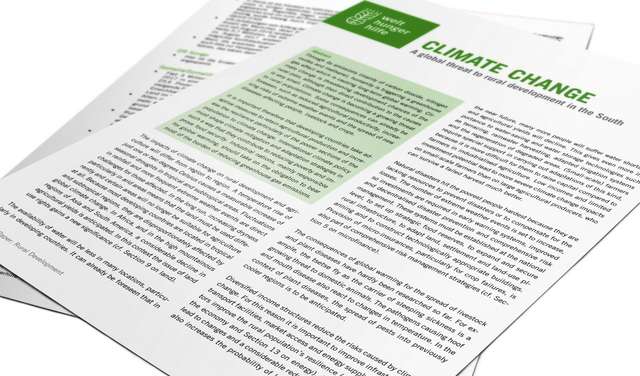
Climate Change

This publication is a section of the WHH position paper on rural development.
Through its emissions (mainly of carbon dioxide, nitrogen oxides and methane), humanity is triggering a greenhouse gas effect which is causing long-term global warming. Climate change is threatening development chances of the rural poor, although their direct contribution to the causes is very small. Climate change is becoming a growing threat to rural populations. some consequences can already be foreseen, such as reduced agricultural productivity, increasing risks of extreme weather events and the spread of new diseases affecting people, livestock and crops.
It is important therefore that developing countries take adaptive measures to retain agricultural production and increase the resilience particularly of the poorer sections of the population to climate change. International climate policy must shape climate mitigation and adaptation strategies in such a way that they contribute to reducing poverty and improve food security. Industrial nations, mainly responsible for global warming, should take on the obligation to bear most of the burden of reducing greenhouse gas emissions.






